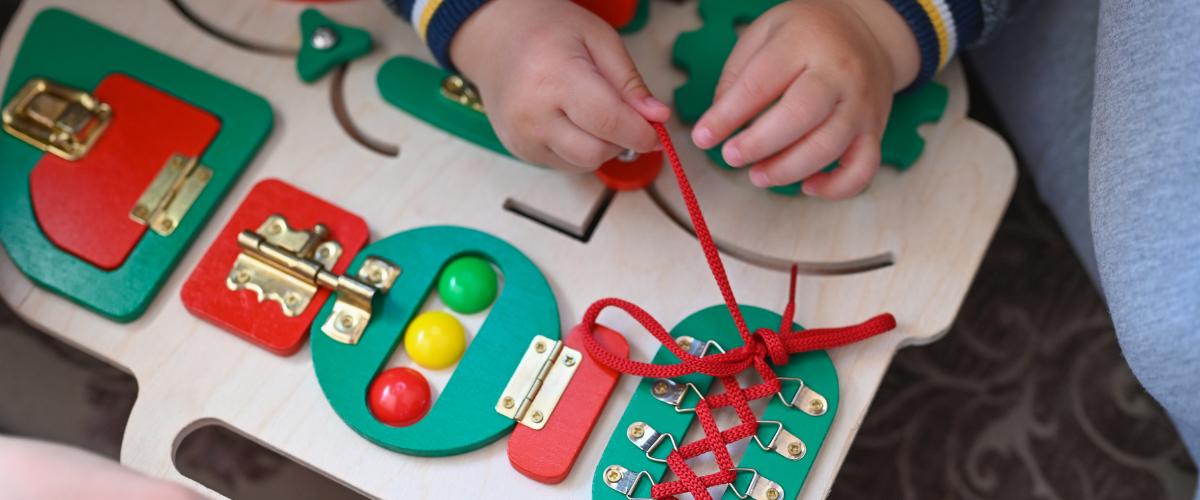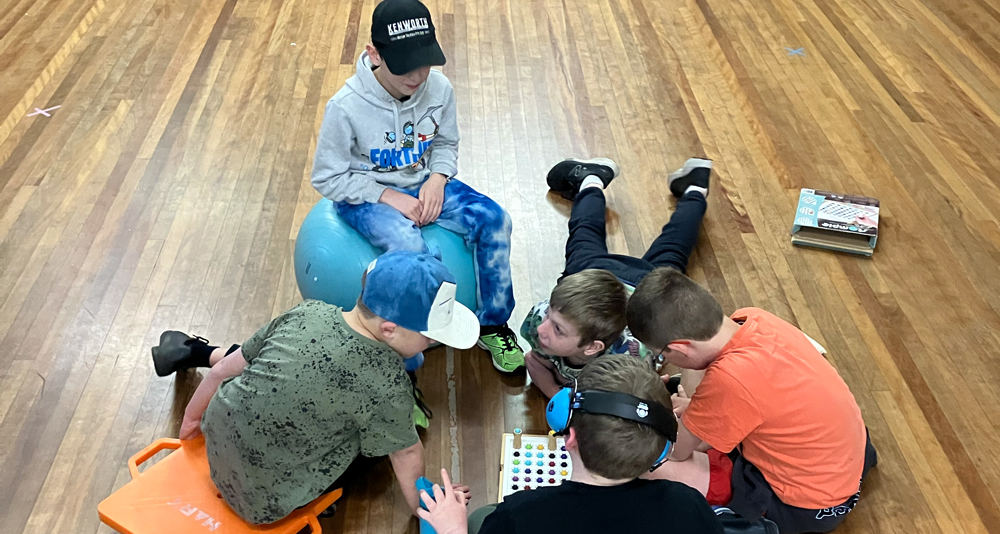
HELPING HANDS: BUILDING COMMUNITY THROUGH FINE MOTOR ACTIVITIES
At Explore & Soar, we believe that skills grow best when they are nurtured through connection.
Over the past few years, we’ve shared insights into how fine motor skills form the foundation for many essential childhood tasks, from handwriting to self-care to creative expression. But as we move into our theme of Community for Wellbeing, we’re reminded that development doesn’t happen in isolation. It’s through relationships, shared experiences and everyday interactions that children learn how to use their hands and how to belong.
Fine motor development is often associated with pencil grip or using scissors and it also plays a powerful role in fostering participation, collaboration and emotional connection. When children use their hands to contribute to a group activity either at home, in therapy or within their school, they’re not just practicing motor control – they’re discovering what it means to be part of something bigger.
What are fine motor skills and why do they matter?
Fine motor skills involve the precise coordination of the small muscles in the hands, fingers and wrists. These movements are necessary for daily activities such as:
- Holding and using utensils
- Buttons and zips on clothing
- Using scissors or craft tools
- Manipulating toys and puzzle pieces
- Drawing, writing, or building
As with all motor development, fine motor skills do not emerge in isolation. They are supported by underlying systems such as postural control, visual input, sensory awareness and strength. Key foundational components include:
- Whole arm development: refers to the development of gross motor skills including strength of the shoulder, upper arm and forearm.
- Hand and finger strength: provides foundation to grasp and stability for gripping, squeezing, and stabilising objects.
- Finger isolation: is an important stage in the development of grasp. It is the ability to move certain fingers apart from the rest of the hand/fingers.
- Thumb opposition: refers to the ability of the thumb to rotate and reach to touch all other fingertips of the same hand.
- Pincer grasp: using the thumb and index finger to pick up and manipulate small objects.
- Bilateral coordination: using both hands together with purpose.
- In-hand manipulation: moving and adjusting an object within one hand.
- Tactile discrimination: identifying texture, size, shape through touch.
- Visual-motor integration: coordinating hand movements with visual input, e.g. coordinating what we see with how we move.
While therapy can help target each of these skills individually, we’ve found that the most meaningful growth occurs when fine motor activities are embedded in relationships, shared routines and joyful experiences.
The power of participation: why connection matters.
One of the biggest questions we hear from parents is, “how do I keep my child engaged in therapy activities at home?” Our answer: make it social, make it meaningful and make it shared.
When fine motor activities are framed as moments of collaboration, rather than tasks to complete, they become less about performance and more about participation. Here are some everyday opportunities where families can build connection and capability…
Cooking together
Cooking is a natural fine motor workout and an opportunity for shared purpose. This can include:
- Peeling and grating: builds hand strength and control.
- Pouring and measuring: enhances grip precision and bilateral coordination.
- Using tongs or picking up ingredients: strengthens pincer grasp and refined hand movements.
- Stirring or whisking: supports upper limb coordination and endurance.
- Mixing or kneading dough: builds endurance and upper limb coordination.
TRY THIS!
Host a weekly ‘Family Pizza Night’. Children can grate cheese, spread sauce, and decorate their own pizzas. Each action supports motor skill development, while also giving children a sense of contribution and joy in shared mealtimes.
Creating through art and craft
Art projects offer endless fine motor opportunities with the added bonus of expression and imagination.
- Cutting with scissors: enhances bilateral coordination and motor planning.
- Drawing and colouring: supports pencil control and visual-motor skills.
- Threading beads or using lacing cards: develops eye-hand coordination and precision.
- Gluing and sticker play: promotes finger isolation and in-hand manipulation.
TRY THIS!
Crafting with a shared goal, such as making a birthday card for a grandparent or decorations for their room, helping children see the value of their efforts and strengthening social-emotional skills.
Games and construction play
Play is a child’s primary occupation. Play can not only support fine motor development, but moments of play also build patience, frustration tolerance and social connection, all essential for long-term wellbeing and family connections.
- Board games with small pieces: promote refined grasp, finger dexterity, and turn-taking.
- Card games: require in-hand manipulation and strategic thinking.
- Construction play (e.g. Lego or magnetic tiles): supports bilateral coordination, hand strength and visual-spatial reasoning.
TRY THIS!
Plan a family Lego challenge where each person contributes to a shared build, maybe a house, a zoo, a spaceship OR plan regular family games nights where different family members can select the game.
Reframing therapy: from task to togetherness
Fitting home therapy into days that already full can feel overwhelming. But, when those goals are part of moments families already value, like dinner prep or playtime, it feels less like a chore and more like time well spent. By embedding therapeutic goals into enjoyable, shared activities, we reduce resistance and increase participation.
This approach allows for:
- Increase carryover of skills to real-world settings
- Stronger emotional connections between children and caregivers
- Reduced pressure on families to ‘get therapy right’ to simply connecting
Children, in turn, are more likely to feel included, successful and motivated. Therapy then becomes less about compliance and more about shared experience and growth.
Final thoughts
Fine motor skills help children do things, but even more importantly, they help children connect. When we weave these skills into our daily routines through mealtime, art or play, we not only build hand strength and coordination but emotional security, family culture and a child’s sense of place in their world.
At Explore & Soar, we know that helping hands don’t just build towers or hold pencils. Helping hands build relationships. That is the foundation of wellbeing. They wave to friends, stir the cake mix, pass the game pieces and craft birthday cards and self-expression.
If you’d like to chat more, please don’t hesitate to contact us today! Call us on 0477 708 217 or email admin@exploreandsoar.com.au
Until next time,
Maddie
PUBLISHED JULY 2025





